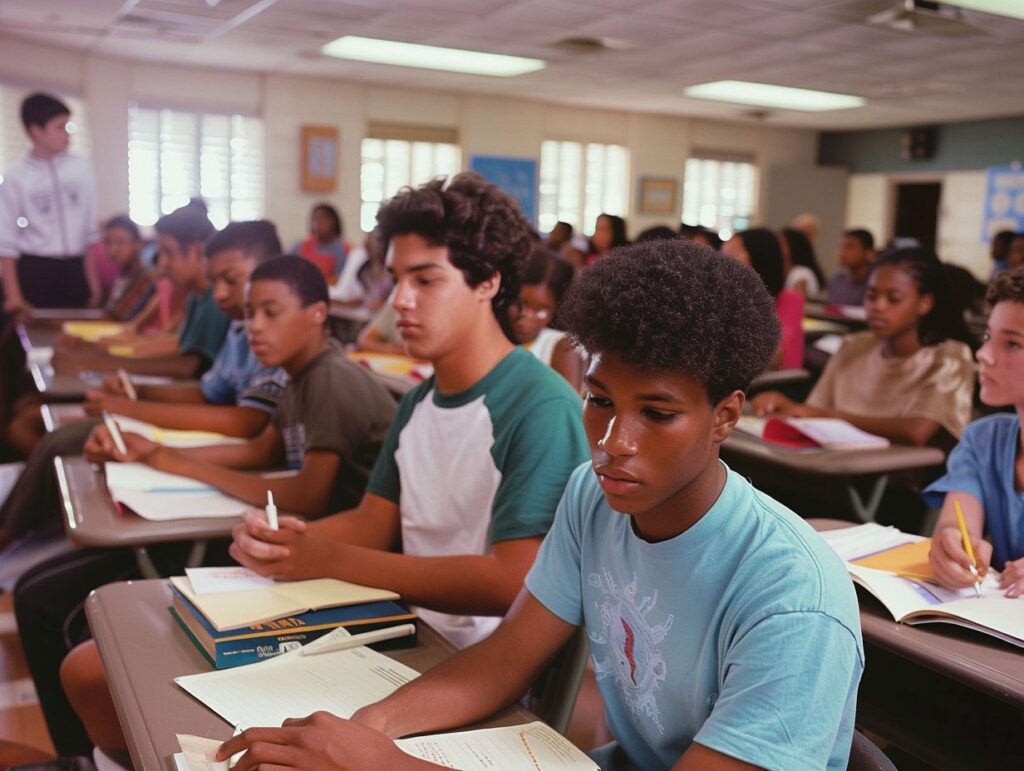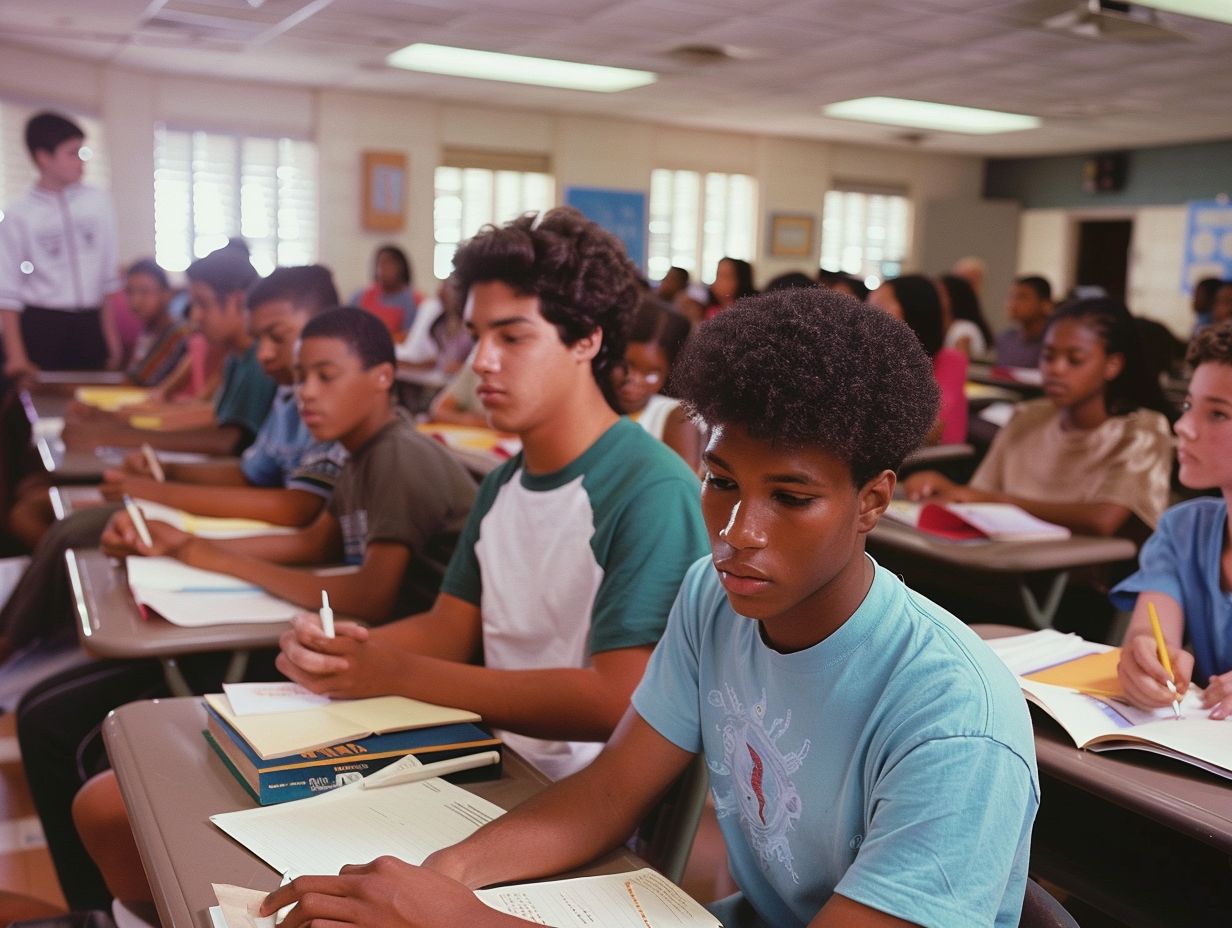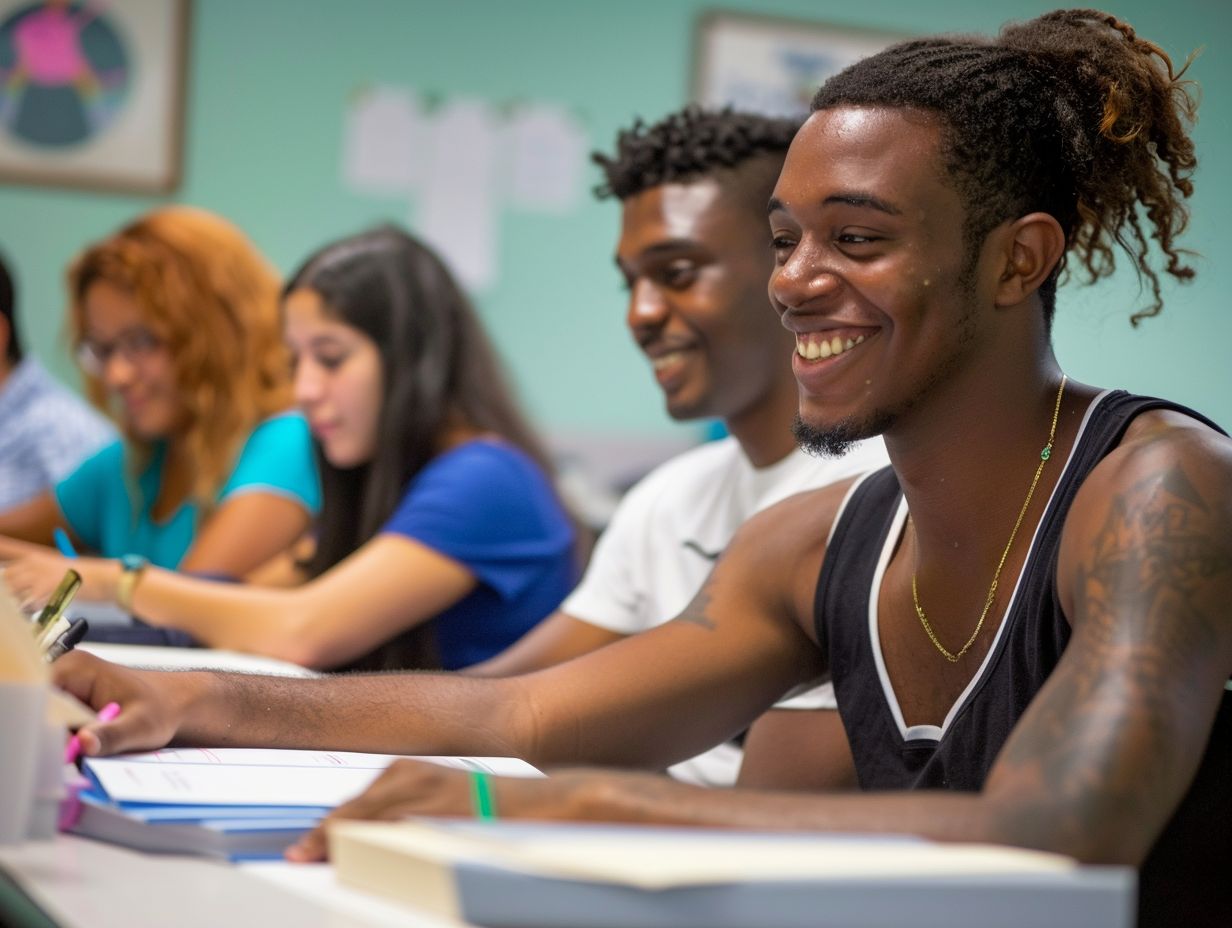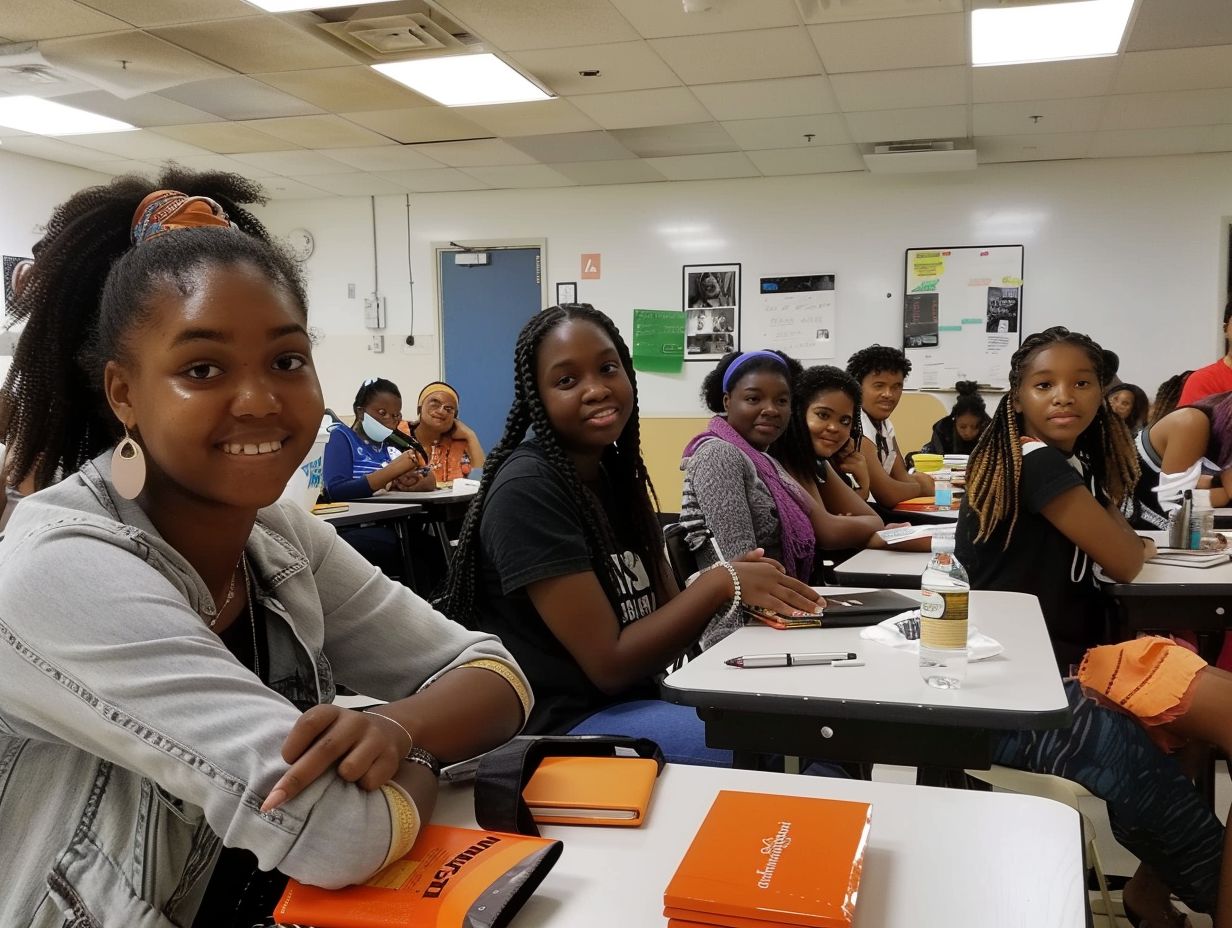Florida’s education system offers a variety of opportunities for immigrant students, but navigating the different types of schools, enrollment requirements, and rights can be challenging.
This article focuses on the key differences between public and private schools, as well as the support and resources available for English language learners, aiming to provide a comprehensive overview of Florida’s education system for immigrants.
We will explore the challenges faced by immigrant students, such as language barriers and financial constraints, and discuss the support systems in place to help them succeed.
Key Takeaways:
- Immigrant students in Florida have the right to equal access to education and resources, regardless of their legal status.
- Florida offers various programs and resources for English language learners, such as English as a Second Language classes and bilingual education programs.
- Immigrant students in Florida may face challenges such as language barriers, financial constraints, and navigating legal status. However, there are support services and resources available to help them overcome these challenges.
Opportunities for Immigrant Students in Florida
Florida offers a range of opportunities for immigrant students, such as access to in-state tuition rates, state financial aid programs, and supportive policies for DACA recipients. These measures are intended to promote the inclusion and success of immigrant students within the state’s education system.
What Are the Rights of Immigrant Students in Florida Schools?
In Florida, immigrant students have specific educational rights protected by the U.S. Supreme Court decision in Plyler v. Doe, guaranteeing access to public education regardless of immigration status.
These rights are essential for ensuring equal opportunities for all students to pursue their academic goals. Organizations like the ACLU of Florida play a significant role in advocating for the protection and promotion of these rights for immigrant students.
They emphasize the importance of inclusive education policies and work against discriminatory practices to establish a fairer educational environment for all students, regardless of their background or immigration status. Through advocacy efforts, immigrant students in Florida can access the necessary educational resources and support to thrive and succeed.
What Programs and Resources Are Available for English Language Learners in Florida?
Florida provides a variety of programs and resources for English Language Learners (ELLs) to support their academic success and integration into the mainstream education system.
These programs consist of language acquisition courses designed specifically for ELLs, offering them specialized instruction to enhance their English proficiency. ELLs in Florida can access support services like tutoring, counseling, and mentoring to ensure they make progress academically.
The state also presents professional development opportunities for teachers who work with ELLs, equipping them with strategies to enhance language learning and academic performance. Through these comprehensive resources and services, Florida aims to give the power to ELLs to succeed in their educational pursuits and thrive in diverse learning environments.
How Can Immigrant Students Access Higher Education in Florida?
Immigrant students in Florida have access to higher education opportunities through programs that provide in-state tuition rates and scholarships, such as those offered by TheDream.US.
These programs offer financial assistance and support for individuals working towards their educational objectives. In-state tuition rates allow students to pay reduced fees in comparison to out-of-state rates, presenting a more cost-effective alternative.
Scholarships like those provided by TheDream.US contribute to lessening the financial strain, facilitating immigrant students’ access to quality education. Organizations and resources that focus on supporting immigrant students play a significant role in offering guidance, mentorship, and advocacy to ensure these students possess the necessary resources for success in their academic endeavors.
Challenges Faced by Immigrant Students in Florida
Immigrant students in Florida encounter various challenges, such as language barriers, financial limitations, and the complexities of navigating immigration policies that can impact their educational experience.
Language Barriers and Cultural Adjustment
Language barriers and cultural adjustment pose significant challenges for immigrant students in Florida as they strive to succeed in their educational endeavors.
Navigating unfamiliar academic and social settings can be daunting for students adapting to a new language and cultural norms. Without sufficient support, these students may experience isolation and difficulties in performing well academically.
Educational institutions in Florida have acknowledged the significance of offering specialized resources and support systems for immigrant students. This includes English language classes, bilingual counselors, and cultural sensitivity training for teachers, all aimed at aiding students in adjusting to their new surroundings and achieving academic success.
Financial Constraints
Financial constraints are a significant challenge for immigrant students in Florida, which can limit their access to educational opportunities despite the presence of state financial aid programs.
These students often encounter additional obstacles in obtaining scholarships and other forms of financial aid. Because of their immigration status, they may be ineligible for certain merit-based scholarships or federal financial aid programs. Some organizations and institutions provide specialized scholarships and grants designed for immigrant students.
While state financial aid programs like the Florida Bright Futures Scholarship Program can offer some assistance, more focused support is necessary to guarantee that immigrant students have fair access to higher education.
Navigating Legal Status and Immigration Policies
The process of understanding legal status and immigration policies can be intricate and stressful for immigrant students in Florida, especially with recent legislative measures like SB 1718 signed by Governor Ron DeSantis.
These students face a range of challenges as they strive to pursue their academic goals while grappling with uncertainties regarding their residency status and the persistent fear of encounters with ICE agents. The looming threat of potential deportation adds to their existing anxiety and unease.
These challenges not only hinder their ability to concentrate on their studies but also extend into their daily lives, affecting their mental and emotional well-being significantly.
Support and Resources for Immigrant Students in Florida
Support and resources for immigrant students in Florida are accessible through various community organizations, school-based services, and government programs, all designed to promote their educational success and well-being.
Community Organizations and Nonprofits
Community organizations and nonprofits, such as Americans for Immigrant Justice and ACLU of Florida, play an important role in supporting immigrant students by offering legal assistance, advocacy, and educational resources. These organizations provide a variety of services tailored to the specific needs of immigrant students.
Americans for Immigrant Justice, for example, provides free legal consultations and representation to assist students in navigating complex immigration laws and procedures.
On the other hand, the ACLU of Florida focuses on policy advocacy and community education initiatives to give the power to immigrant students and their families. Both organizations conduct outreach programs and workshops to promote cultural integration and offer a safe space for students to seek guidance and support.
School-Based Support Services
Florida schools provide a range of school-based support services to help immigrant students, one of which is the Migrant Education Program (MEP) that offers academic and social support.
An important feature of the MEP is its emphasis on customizing educational plans to address the specific requirements of migrant students who might encounter obstacles like frequent moves.
Florida schools frequently have bilingual counselors who offer language assistance and advice to aid immigrant students in navigating the education system. These counselors play a vital role in nurturing a feeling of inclusion and guaranteeing that immigrant students can utilize resources that enhance their academic and personal growth.
Government Programs and Initiatives
Government programs and initiatives, supported by entities such as the U.S. Department of Education and FWD.us, aim to provide comprehensive support to immigrant students in Florida.
These programs offer a range of services designed to address the unique needs of immigrant students, such as language support, academic guidance, and cultural integration assistance.
The U.S. Department of Education focuses on enhancing educational opportunities for immigrant youth through initiatives like English language learning programs and scholarship opportunities.
FWD.us provides advocacy and resources to help immigrant students navigate the complexities of the education system and access financial aid and scholarship programs.
By collaborating with educational institutions and community organizations, these programs strive to create a more inclusive and supportive environment for immigrant students in Florida.
Frequently Asked Questions
What is Florida’s educational system for immigrants?
Florida’s educational system for immigrants provides opportunities for immigrant students to access quality education at all levels, from pre-kindergarten to post-secondary education.
What are the requirements for immigrant students to enroll in Florida’s public schools?
According to state law, immigrant students who are not US citizens must provide proof of legal residency or an approved waiver to enroll in Florida’s public schools.
Are undocumented immigrant students eligible for in-state tuition at Florida’s public colleges and universities?
Yes, under Florida law, undocumented immigrant students who attended high school in the state for at least three years and graduate are eligible for in-state tuition at public colleges and universities.
What resources are available for immigrant students in Florida’s educational system?
Florida offers English language learning programs, bilingual education, and other support services to help immigrant students succeed in the classroom. Additionally, there are organizations and programs specifically designed to assist immigrant students and their families.
Are there any scholarships or financial aid options available for immigrant students in Florida?
Yes, there are several scholarships and financial aid options available for immigrant students in Florida, including the Florida Student Assistance Grant and the Bright Futures Scholarship. Eligibility requirements vary, so it’s important to research and apply for these opportunities.
What steps can immigrant students take to prepare for higher education in Florida?
Immigrant students can take advantage of resources such as college preparatory programs, career counseling, and Advanced Placement (AP) courses to prepare for higher education in Florida. They can also seek guidance from counselors and mentors who can help them navigate the admissions process.



























Rate this article:
Average rating 0 / 5. Vote count: 0
No votes so far! Be the first to rate this post.
No Comments yet!